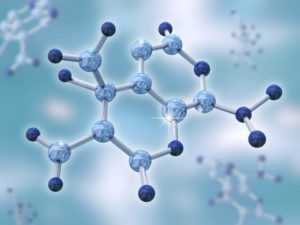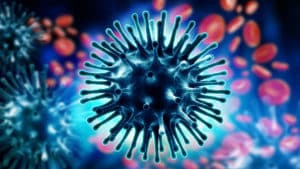In our December 2018 education meeting, we were pleased to hear from Dr. Alan Light, a Professor of Anesthesiology, Neurobiology, and Anatomy at the University of Utah. He has published more than 120 peer-reviewed articles, and has spent the last 10 years of his career focusing on the symptoms and causes of ME/CFS. He presented insights into how genes affect ME/CFS, as discovered by ongoing findings from his research team.
Potential Factors in ME/CFS Illness Onset
Genetic Variation
Light’s research is ongoing, but preliminary findings demonstrate that gene variations may yield useful information about ME/CFS. As the research is ongoing and has not yet been statistically evaluated, we cannot yet report results with any confidence. Instead, we will discuss the avenues of research that current findings suggest.
Redundancy
The body tends to have multiple parts that do essentially the same thing. If one mechanism goes down, there is a backup system that can take over and keep things running smoothly. This makes the body adaptable, even in the face of serious problems. Redundancy may have an important relationship to ME/CFS. In essence, it is currently hypothesized that when ME/CFS symptoms arise from any source, redundant systems can take over. However, environmental triggers may help “overwhelm” this redundant protection system and make ME/CFS onset more likely. Thus, gene variants may be more like risk factors than a direct cause of ME/CFS. Redundancy is especially significant when we consider that both the patient and control group possessed some of the same gene variations. Redundancy helps us understand that in healthy people, redundant systems may have successfully dealt with the gene variations before they affected ME/CFS.
Autoimmune Disorders
Autoimmune disorders occur when the body’s system of immune responses attacks healthy cells and tissues. Light’s research points to connections between autoimmune genes and the presence of ME/CFS, suggesting that a predisposition for autoimmune disorders may affect ME/CFS.
Environmental pathogens, such as mold, bacteria, viruses, toxins, and chemicals, can trigger an autoimmune response and lead to molecular mimicry. Molecular mimicry (in theory), occurs because some pathogens “look” very similar to healthy body tissues.

Digging Into the Data
Light’s ongoing research points to potentially significant tracks of research:
Mitochondrial variants
This study noted several mitochondrial variations, which affect the electron transport chain that begins the energy production process.
Chromosomal variants
Some variations do not occur in the mitochondrial genes themselves, but in the many chromosomal genes that the mitochondria hold. These variations have the potential to impact energy functioning, mitochondria replication, transporting ADP and ATP (which both hold energy for the body to use), and proteins that make mitochondria.

Variations in genes for immune and autoimmune regulation may affect viral entry into the host’s cytoplasm and molecular signatures (which identify the self and non-self during a viral infection), the regulation of the immune system, and the B-cell production of antibodies.
Family factors
This research study found two families where 4+ members were diagnosed with ME/CFS; among these patients, common variants affected protection against stress, management of damaged mitochondria, energy balance, metabolism pathways, autoimmune responses, and energy storage, and irritable bowel syndrome (IBS).
One potential ME/CFS subgroup had variants affecting muscle weakness and pain, kidney and liver dysfunction, and low ketones and blood sugar. Symptoms were triggered by viral or bacterial infections, exercise, and fasting.
Light’s research suggests that some immune and autoimmune genes, as well as energy and metabolism genes, tend to display more variations in ME/CFS patients than in the control group.
Putting It All Together
There are a wide variety of gene variations that may have some relationship with ME/CFS symptoms. We know from other diseases that many different gene variations can cause the same damage and symptoms, in part because redundancy means that there are many genes in your body that have the same sort of function.
Since similar symptoms can therefore stem from a wide variety of sources, addressing ME/CFS is a matter of handling specific circumstances and subgroups, not administering a one-size-fits-all treatment.
At the Bateman Horne Center, we are dedicated to both investigating and distributing key research into ME/CFS including illness sub-setting. Read more about BHC’s epigenetic ME/CFS investigations in our most recent post from BHC Research Director, Suzanne Vernon.
If this content has been useful to you or a loved one, we invite you to check out our free online class series, explore our online library, read our blog, and subscribe to our monthly newsletter. We thank you for your continued support as we aim to improve today’s quality of life for ME/CFS and Fibromyalgia patients everywhere.
Please consider making a donation to BHC, a 501 (c)3 nonprofit organization today.
We gratefully thank Dr. Alan Light for his presentation and for his team’s insightful contributions to the field. Watch the recording of our December education meeting here:


 Lucinda Bateman, MD, is a renowned clinician, researcher, and educator. Her Johns Hopkins University Medical School training instilled an approach to care that she has employed throughout her career - the patient comes first and the unknown or unexplained does not equate to a lack of proper and compassionate care. Since starting her own practice in 2000, she has served on six boards or committees, been the principal investigator for 45 studies, authored/coauthored 40 journal articles, served as adjunct instructor and adjunct assistant professor in the University of Utah Departments of Preventative Medicine, Internal Medicine, and Anesthesiology, and lectured around the world.
Lucinda Bateman, MD, is a renowned clinician, researcher, and educator. Her Johns Hopkins University Medical School training instilled an approach to care that she has employed throughout her career - the patient comes first and the unknown or unexplained does not equate to a lack of proper and compassionate care. Since starting her own practice in 2000, she has served on six boards or committees, been the principal investigator for 45 studies, authored/coauthored 40 journal articles, served as adjunct instructor and adjunct assistant professor in the University of Utah Departments of Preventative Medicine, Internal Medicine, and Anesthesiology, and lectured around the world.